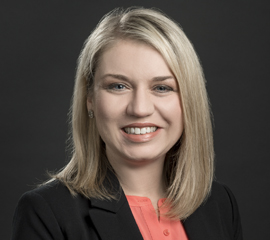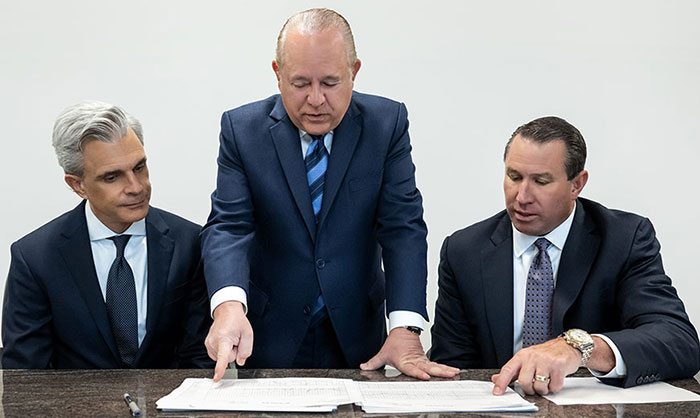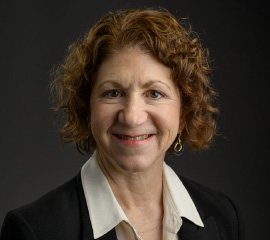Anesthesia Errors in Labor And Delivery
A number of factors contribute to labor pains, such as uterine muscle contractions, cervix pressure, stretching of the vagina and birth canal, and pressure of the baby on the bowels and bladder. Commonly used options for pain relief during vaginal delivery include analgesic drugs. In case of a C-section, local, regional, or general anesthesia must be administered.

Anesthesia errors, such as over-dosage of the anesthetic drug, wrong choice of anesthetic technique, failure to monitor the mother and the baby (with fetal heart monitoring and other methods), intubation errors (incorrect tube positioning in the airway or disconnected, overinflated or damaged tube), and communication errors between the anesthesiologist and the rest of the perinatal team can increase the risk of injury to the mother and the baby.
Mistakes in the use of analgesia and anesthesia can put the baby at an increased risk of fetal hypoxia, fetal acidosis, and fetal distress syndrome. In some cases, the adverse outcomes for the baby may include hypoxic-ischemic encephalopathy (HIE), which is a major cause of cerebral palsy.
Analgesia vs. Anesthesia for Childbirth
- Analgesia: Analgesia is used during vaginal delivery to provide relief from labor pain, which is a form of acute pain. Neuraxial labor analgesia, which involves administration of analgesics (pain relievers) as epidural (in the space around the spinal cord), spinal (directly into the spinal cord) or combined spinal-epidural analgesia (CSE), is currently accepted as the most effective technique for pain control during labor and delivery.
- Anesthesia: Unlike analgesia, which numbs the pain without causing a total loss of sensation, anesthesia removes all sensation from the targeted areas. According to the practice guidelines published by the American Society of Anesthesiologists, a spinal block, an epidural or combined anesthesia should be used for most cesarean deliveries. In exceptional cases, general anesthesia may be used (where the mother will be unconscious during the entire surgical procedure).
Regional Anesthesia and the Risks of Instrumental Delivery

During epidural or spinal anesthesia or analgesia procedure for a vaginal delivery, the anesthesiologist will insert a catheter (a thin tube) underneath the skin tissue into the space around the spinal cord (epidural) or directly into the cerebrospinal fluid (spinal). The catheter will be connected to an infusion pump that delivers the anesthetic continuously until the baby is delivered.
Both epidural and spinal anesthesia have been associated with an increased risk of assisted vaginal delivery (instrumental delivery using forceps or vacuum extractors). This is because it can affect the ability of the mother to “push” during labor and delivery. Randomized clinical trial meta analyses have shown that the use of regional anesthesia prolonged the average duration of labor. At the same time, the rate of instrumental delivery was higher in women receiving spinal or epidural anesthesia (compared to the use of analgesic medications).
A comparison between high-dose epidural and spinal/epidural combination anesthesia showed that the rate of instrumental vaginal delivery was lower when the combination technique was used. Instrument assisted delivery increases the baby’s risk of birth injuries, such as:
- Skull fracture or skull bone displacement
- Cephalohematoma (formation of blood clots underneath the scalp)
- Brain bleeds (intracranial hemorrhage)
- Facial palsy (weakness in the facial muscles)
- Seizures
- Cerebral palsy
Considering the potential adverse outcomes, anesthesiologists administering epidural anesthesia should focus on initiating and maintaining low or altered concentration levels of the pain relief medication to minimize the risk of instrumental vaginal delivery.
Epidural Anesthesia and Prolonged Second Stage of Labor
The first stage of labor is when the cervix is dilated to 10 cm. The second stage of labor is when the baby moves down vaginally, and birth occurs. The third stage (afterbirth) is when the placenta is delivered. Studies have shown that epidural anesthesia or analgesia may be linked to a prolonged second stage of labor in some cases (by up to two hours).
Prolonged labor in the second stage increases the baby’s risk of birth injuries, such as:
- Fetal hypoxia
- Birth asphyxia
- Fetal acidosis
- Fetal bradycardia (low fetal heart rate or FHR)
- Hypoxic ischemic encephalopathy (HIE)
- Cerebral palsy
Considering these potentially serious neonatal outcomes, the anesthesia team and the medial team should work in close coordination to detect early symptoms of fetal distress when epidural anesthesia is administered.
The medical team and the anesthesiologist should also ensure that in case of epidural anesthesia, the woman avoids oral intake of thick liquids and solid foods. (Only clear liquids containing glucose may be allowed).
Oral intake issues should be considered more carefully when the woman has a pre-existing condition, such as obesity or gestational diabetes, or the baby shows signs of respiratory distress syndrome or the electronic fetal heart rate monitor readings are non-reassuring. In these situations, oral intake may increase the risk of cesarean section and/or meconium aspiration syndrome (MAS).
Over-dosage of Anesthetics, Positioning Mistakes and FHR Abnormalities

An excessive dosage of epidural or spinal anesthetic drugs can have direct toxic effects on the baby, and the baby’s toxicity levels may be higher than even the mother’s levels. Potential complications for the baby include abnormal fetal heart rate (FHR) changes, indicating fetal bradycardia or fetal hypoxia. The effects typically occur within the first 30 minutes after the anesthesia is administered through epidural or spinal methods.
Timely drug treatment and maternal change of position may help resolve the condition. In more severe cases of fetal distress, the medical team must be prepared for an emergency cesarean section.
Supine position (lying on the back) when an epidural has been administered may also contribute to maternal hypotension (low blood pressure), increasing the risk of FHR abnormalities and fetal hypoxia. This risk is especially high in heavier expectant mothers. To avoid this risk, the mother should be “wedged” with a positioning device to avoid this drop in blood pressure. The mother and baby should be closely monitored by the anesthesia team and the labor and delivery doctors and nurses for a drop in blood pressure due to being laid flat.
Epidural-Related Maternal Fever and Risks for the Baby
According to research studies, about one in five pregnant women who are administered epidural analgesia or anesthesia may develop an epidural-related fever (above 100.4° F) during labor. This should alert the medical providers to the increased risk for the baby, and the mother should be monitored for maternal fever. The higher the mother’s epidural-induced fever (intrapartum hyperthermia), the greater is the risk of complications for the baby.

Complications for the baby may include low APGAR scores, breathing difficulties, poor muscle tone, and seizures. About 12% of the babies where the mother developed an epidural-related fever of 101° F or higher require neonatal resuscitation measures during delivery. Researchers have also shown that epidural analgesia related maternal fever may have a strong association with hypoxic ischemic encephalopathy (HIE) and the consequent risks of cerebral palsy, but many of these can be avoided by close monitoring of the labor and delivery team and preparation at delivery with a neonatal team.
A baby born to a mother with epidural-induced fever should also be evaluated for sepsis (blood infection). Sepsis evaluation will involve invasive tests and baby’s admission to critical care. Antibiotics should be administered until the test results are determined. According to a research study, one out three epidural babies born to first-time mothers received sepsis evaluation compared to one in 10 non-epidural babies.
Research Shows Epidural Hyperthermia may be a Risk Factor for Neonatal Brain Injury
Researchers conducted a meta analysis and systematic review to investigate three questions:
- 1. Can epidural analgesia or anesthesia cause intrapartum hyperthermia (maternal fever)?
- 2. Is maternal fever associated with neonatal brain injury (a spectrum of medical conditions, including HIE and cerebral palsy)?
- 3. Is epidural-induced maternal fever associated with neonatal brain injury?
Researchers analyzed
• 41 studies for question # 1
• 36 studies for question # 2
• Two studies for question # 3
*The analyses showed that epidural anesthesia is indeed associated with maternal fever. Pertaining to this, maternal fever is associated with neonatal brain injury.
Although researchers could not quantify the association between epidural-induced maternal fever and neonatal brain injury, the fact that maternal fever is linked to neonatal brain injury raises questions about whether epidural anesthesia is an independent risk factor of neonatal brain injury.
Anesthesiologists Should Consider the Possibility of Epidural-Induced Fever
A study published in the Lancet journal concluded that there is a progressive rise in maternal temperature of about 33.8 F every 8 hours after the initiation of epidural anesthesia. In other words, epidural-induced fever may depend on the duration of the epidural block.
There is also a possibility that maternal fever during labor may occur because of an underlying chorioamnionitis infection (bacterial infection of the vagina during pregnancy.) As a result, pregnant women are more likely to request epidural anesthesia if they have subclinical (mild and non-observable) chorioamnionitis symptoms, such as uterine tenderness.
In view of this correlation (which is backed by research), anesthesiologists must consider the potential risks of epidural-induced maternal fever while determining the anesthetic drug, dosage, and technique.
Cesarean Delivery & Anesthesia Errors

A Cesarean section may be planned in advance or may have to be performed in an emergency. Potential anesthesia errors that can lead to adverse outcomes for the mother and the baby include:
Errors of Dosage
Overdose of epidural or spinal anesthetic during a c-section may lead to consequences, such as cardiac problems or brain damage. On the other hand, under-dosage in case of general anesthesia during c-section may cause the mother to awaken during surgery.
Failure to Monitor Fetal Heart Rate (FHR)
In a scheduled cesarean delivery, the anesthesiologist should determine and document whether the fetal heart rate (FHR) reading is normal before starting anesthesia. In case of an emergency cesarean delivery, continuous fetal heart rate monitoring must be performed to look for any early signs of fetal distress. Failure of the anesthesiologist and the medical team on this front can result in fetal bradycardia, fetal hypoxia, HIE, or cerebral palsy.
Failure to Monitor Other Vital Signs
During a c-section, the anesthesiologist should be present throughout the procedure to monitor the patient’s vital signs and oxygen levels. Failure to notice marked fluctuations in the patient’s breathing, heart rate, and blood pressure levels can have severe consequences for the mother and the baby.
Intubation Errors
In some cases of cesarean section involving general anesthesia (vs. an epidural), an intubation procedure is used where a thin tube is passed into the trachea to facilitate breathing. If the anesthesiologist wrongly places the tube, it can result in breathing complications, mouth lacerations, throat damage, and injuries to the larynx. Common placement mistakes involve the intubation being placed into the esophagus (connecting to the stomach) vs. the trachea (connecting to the lungs). This mistake can be caught if the anesthesiologist is monitoring oxygen and carbon monoxide levels.
Errors of Injection Placement
When the anesthesiologist administers epidural anesthesia, they must place the injection precisely into the epidural space around the spinal cord. In case of spinal anesthesia, the injection must be placed directly into the spinal sac which contains the cerebrospinal fluid. Wrong placement of the injection may not only deprive the patient from pain relief, it may even lead to extreme consequences, such as paralysis.
In some situations, an epidural anesthesia will go up towards the mother’s lungs and heart vs. down and around her pelvis. This is referred to as the epidural being “High”. This is an emergency situation that can place the life and health of both the mother and baby at risk. When this occurs, the proper response is an emergency c-section.
Failure to Review Medical History
The anesthesiologist must review the pregnant woman’s detailed medical chart and history to understand her risks of possible anesthesia complications. They should be aware of her pre-existing medical conditions, current medications, and any known drug allergies. Any errors of omission or commission in this process can create adverse outcomes for the mother and the baby during a c-section.
Delays in Performing Cesarean Delivery
Lack of coordination and poor communication between the anesthesiologist and the labor and delivery team may sometimes result in the doctors waiting too long before an emergency cesarean delivery is performed. Failure to monitor fetal heart rate, attempting other means to induce delivery when a c-section should have been performed, and lack of preparation for an emergency cesarean section are some of the causes of delays in the procedure, which can lead to severe consequences.
Medication Errors Related to Anesthesia
Whether it is a vaginal delivery involving analgesia or a cesarean section requiring anesthesia, medication errors during the administration of anesthesia can pose serious risk to the mother and the baby. Researchers have reported wrong administration of local anesthetics, sedatives and narcotics, muscle relaxants, ketamine, and anticholingerics (drugs to block nerve action) due to a variety of factors, such as:
- Haste
- Inattention
- Fatigue
- Carelessness
- Overtime
- Lack of staff
- Syringe and ampoule swaps
- Inaccurate or confusing syringe labeling
- Incomplete packaging
- Misidentification (sound-alike or look-alike drugs)
- Inaccurate drug dose calculation
- Inexperience or lack of drug knowledge
- Poor communication
Anesthesiologists must be Familiar with Fetal Assessments
Are most anesthesiologists familiar with the implications of abnormal fetal assessments? The anesthesiologist’s lack of understanding about intrapartum fetal assessments may lead to poor anesthetic management, particularly when the baby is experiencing fetal distress. Assessing the fetal health before anesthesia is important because a compromised baby is likely to have poor tolerance to anesthesia.
Lack of familiarity on this front may result in sub-optimal communication between the anesthesiologist and the obstetrics team. A survey carried out in the UK showed that 61% of anesthesiologists claimed they could interpret the readings of electronic fetal heart monitoring (EFHM), yet only 20% of them knew what is the correct range of the baseline FHR (fetal heart rate).

An American Society of Anesthesiologists database analysis found that in newborn brain damage or mortality cases associated with obstetric anesthesia, factors such as substandard anesthetic care, anesthesia delay and poor communication between the anesthesiologist and the medical team were at least partial contributors to the adverse outcomes. Poor communication with regard to the urgency of delivery also led to a sub-optimal selection of the anesthetic technique.
According to the ASA Task Force on Obstetric Anesthesia, “The decision to use a particular anesthetic technique for cesarean delivery should be individualized based on several factors. These include anesthetic, obstetric, or fetal risk factors (for example, elective vs. emergency), the preferences of the patient, and the judgment of the anesthesiologist.”
Is Your Child’s Anesthesia Error Related Complication the Result of Medical Malpractice?
Parents whose children suffer from anesthesia error related complications deserve answers as to how their child developed this condition and whether the complications resulting from it were preventable. Were there signs during the pregnancy, labor, and delivery process that an infection or its related complication was occurring, but appropriate anesthesia administration, correct treatment or an emergency c-section was either delayed or not performed at all? Was a neonatal resuscitation team not called to delivery in a timely manner to address breathing difficulties? Did the baby qualify for hypothermia therapy, but the doctors and nurses failed to perform the appropriate analysis or ignored the results of the analysis?
Our dedicated birth injury lawyers want to help you find those answers and obtain that coveted financial reward necessary to provide care and therapy that can help improve the quality of your child’s life. Winning a lawsuit in this way can improve the quality of your life for a number of reasons.
If your child has been diagnosed with an anesthesia error related injury (including Hypoxic-Ischemic Encephalopathy (HIE) or cerebral palsy), and you suspect this may have been caused in part by medical mistakes, Miller Weisbrod Olesky will thoroughly investigate the facts and hold responsible medical providers accountable by pursuing medical malpractice claims against them. The compensation our clients receive helps them pay for their child’s current and future medical treatment and devices to help the child adjust to living with a permanent disability, and to be able to pay for these cutting-edge devices.
Sometimes families are hesitant to reach out to a medical malpractice attorney or law firm. Other parents feel overwhelmed by their circumstances and worried that they will not be able to help out in a lawsuit involving their child’s birth injury.
Registered Nurses and Nurse-Attorneys Are a Vital Part of Our Birth Injury Team … and Yours

Most national birth injury law firms will employ one or two nurses to assist the review of cases and medical research. But Miller Weisbrod Olesky offers an unmatched number of nurses and nurse-attorney employees support to both the birth injury attorneys and our clients.
Our team of registered nursing staff and nurse-attorneys bring a deep level of medical and personal insight to every client’s case. Our nursing team includes both an experienced labor and delivery nurse as well as an ICU nurse. Working closely with the rest of the team, they investigate the reasons behind a birth injury and how medical professionals breached their standard of care.
Meet our Legal Nursing Team
Linda Chalk

As a registered nurse, Linda practiced ICU nursing for 44 years while caring for a wide range of patient conditions. She has worked closely with founding partner Les Weisbrod for over 30 years, investigating and pursuing birth injury cases.
Along with DJ Weisbrod, Linda heads up the firm’s birth injury intake, screening, and medical literature research team. She personally screens all potential cases to ensure that medical issues have been addressed before we file lawsuits on behalf of birth-injured children and their families.
DJ Weisbrod

Before joining Miller Weisbrod, DJ practiced as a surgical nurse in various hospital and operative settings. She has been with the firm over 30 years.
DJ directs Miller Weisbrod’s birth injury intake and medical screening team. She has also served as firm founder Les Weisbrod’s trial nurse for all cases involving medical negligence and birth injury.
Linda Cuaderes

Linda Cuaderes is both a registered nurse and a licensed lawyer. Linda works exclusively in Miller Weisbrod’s Birth Injury and Medical Malpractice section. Linda acts as the firm’s patient advocate and liaison with our young clients and their parents.
Linda combines her legal and nursing experience along with her exceptional organizational talent and attention to detail to make sure each child we represent is provided the highest level of medical care and attendant care during the pendency of their case. Linda communicates with our parent clients regularly to monitor their birth injured child’s treatment, provide guidance as to additional care and therapies and when necessary assist them in obtaining specialized medical providers.
Linda was raised in Bartlesville, Oklahoma and completed her Bachelor of Science in Nursing with Honors at the University of Oklahoma. She started as an Oncology Nurse at Presbyterian Hospital in Oklahoma City, quickly becoming the Assistant Head Nurse of the Outpatient Endoscopy Unit. Linda then entered the University of Oklahoma College of Law.
Following graduation, Linda joined Les Weisbrod in the Medical Malpractice Section. After taking time off to raise her three lovely children, Linda returned to Miller Weisbrod and her passion of holding healthcare providers accountable for preventable errors. Linda is active in the American Association for Justice, Texas Trial Lawyers Association, Dallas Trial Lawyers Association, and the Texas Bar Association. Linda is an active member of the Birth Trauma Litigation Group and Medical Negligence Section of the American Association for Justice.
She is admitted to practice before the Texas Supreme Court and routinely works on cases pending throughout the United States. Linda has worked with child victims of birth injury, their parents and other victims of medical malpractice in Texas, New Mexico, Oklahoma, Arkansas, Louisiana, Iowa, Ohio, New York, Alabama, Georgia, Arizona, Utah and Missouri.
Education
- University of Oklahoma - School of Law, 1990, J.D. - Norman, Oklahoma
- University of Oklahoma - School of Nursing, 1985 - Norman, Oklahoma
Areas of Practice
- Birth Injury/Birth Trauma
- Medical Malpractice
Associations & Memberships
- Texas Bar Association
- American Association of Justice
- Texas Trial Lawyers Association
- Dallas Trial Lawyers Association
Kristin Jones

Kristin combines her medical and legal training to provide invaluable, passionate service to parents struggling to care for their birth-injured children.
Families often have questions as they go through the birth injury lawsuit process. Kristin diligently identifies and investigates all medical issues so the birth injury attorneys at Miller Weisbrod can answer those questions Kristin ensures that our birth injured children’s medical records are thoroughly reviewed and organized. Miller Weisbrod’s birth trauma litigation attorneys and medical experts retained by the firm need her services while pursuing justice for our clients.
Kelly Kunkel

Kelly Kunkel was born and raised in Dallas, Texas. She has 15 years’ experience in hospital based High Risk Obstetrics and Labor and Delivery bedside nursing care. Kelly graduated with an Associate’s Degree in Nursing from El Centro College in December of 1990 and received her Bachelor’s Degree in Nursing from West Texas A & M University in 2008; graduating with honors.
In addition, Kelly has over 25 years’ experience in medical malpractice case management and litigation and has worked with David Olesky for over 22 years. After many years of assisting in defending healthcare providers and hospital systems in medical malpractice cases involving complex litigation matters related to birth injury, catastrophic injury and death, Kelly has proudly joined David Olesky in the national birth injury and medical negligence practice at Miller Weisbrod Olesky.
Why Should You Talk with the Knowledgeable Attorneys at Miller Weisbrod Olesky?

The only way to find out if you have a birth injury case is to talk to an attorney who understands birth injuries leading to a delay or failure in developmental milestones including birth injuries that cause cerebral palsy. It’s not uncommon that an anesthesia error related complication can be a preventable birth injury, but it takes a detailed expert review of the facts and circumstances of your child’s birth to determine the birth injury was the result of medical malpractice.
At Miller Weisbrod Olesky, a team of committed attorneys, nurses and paraprofessionals uses our detailed medical negligence case review process to assess your potential birth injury case. We start by learning more about you and your child and the status of meeting/missing developmental milestones. Then we gather medical records to determine what happened before, during, and after your delivery. We call in skilled medical experts who review your records and let us know if they think medical errors could have caused your child’s injuries.
If we feel medical negligence caused or contributed to your child’s injuries, we meet with you to discuss how you can receive compensation from the medical professionals who made the errors. Our birth injury attorneys have recovered millions of dollars in settlements for families of babies that have suffered a birth injury.
At no point in our legal intake process will we ask you to pay anything. The medical review of your case and the consultation are free. We only receive payment when you do.
Contact Our National Birth Injury Lawyers
Our Birth Injury Attorneys
Les Weisbrod

Les Weisbrod has been on the cutting edge of the national birth injury litigation scene for almost 40 years.
As a national birth injury attorney, Les has settled over 204 medical negligence cases for more than $1,000,000. He also obtained settlements in 75 birth injury cases for over $1,000,000 each.
His $31 million verdict against Baylor University Medical Center in Dallas was one of the top 100 verdicts in the United States that given year.
Les is recognized nationally and internationally as one of the top plaintiff’s medical malpractice trial lawyers in the United States. But the recoveries for the clients and the differences made in the lives of the children and families Les has represented tell only part of the story.
Les has worked with his law partner Clay Miller for years to build a one-of-a-kind law firm.
Miller Weisbrod Olesky provides unique and unparalleled services to families of birth-injured and brain-injured children from the moment the firm decides to take the case.
The registered nurses and registered nurse-attorneys on staff are valuable team members who assist Miller Weisbrod birth-injury clients. Les has designed a system where each birth injured child is assigned a nurse-attorney liaison to guide them through the process of medical treatment/evaluation, therapies, home assistance, and quality of life improvement.
Miller Weisbrod’s unmatched service allows families to better cope with the immediate challenges facing our young clients.
Birth-injured children and their families are Les and Miller Weisbrod’s priority.
Les and the attorneys at Miller Weisbrod fight for the justice their clients are entitled to under our nation’s system of justice.
This fighting spirit has taken Les across the United States to represent clients in birth injury and medical negligence cases. In fact, he has personally handled cases not only in Texas but also in Arkansas, Arizona, Colorado, Oklahoma, Louisiana, Utah, Iowa, Ohio, Oregon, Montana, Alabama, Georgia, Florida, and New York.
Les and Miller Weisbrod continue to expand their reach of helping brain-injured children to new states each year as we strive to bring a sense of justice to each affected family. And Les is not the only one who notices he fights for his clients.
Michael Rustad, a Professor of Law at Suffolk University Law School in Boston who has done extensive research on punitive damage awards, says,
“Les Weisbrod has obtained more medical malpractice punitive damage jury verdicts for his clients than any other attorney in the United States.”
Also, a well-known defense medical malpractice attorney dubbed Les Weisbrod the “pitbull” of the Texas medical malpractice bar in a media profile of Les published by a major newspaper.
Les shares his experience and knowledge to improve the representation of all birth-injured children and their families.
In the early 1990s, Les recognized that a more focused effort needed to be made to educate attorneys who handle birth injury cases. As a result, Les was the founding Co-Chair of the American Association for Justice (AAJ) Birth Trauma Litigation Group in 1991. He also was a founding Co-Chair of AAJ’s Medical Negligence Litigation Group in 1999 and served as Chair of AAJ’s Professional Negligence Section in 1996.
Combined, these groups have put on more than a hundred continuing education seminars across the United States. helping to educate other attorneys by bringing in world-renowned experts in the fields of:
- labor and delivery
- neonatal care
- the care and treatment of birth-injured children, including those suffering from cerebral palsy and hypoxic-ischemic encephalopathy (HIE)
Education and professional experiences back up his dedication to helping children and families harmed by medical malpractice.
Les received his B.A. magna cum laude in 1975 from Claremont Men’s College and his J.D. in 1978 from Southern Methodist University Law School.
He is Board Certified by the Texas Board of Legal Specialization in Personal Injury Trial Law and Civil Trial Law.
Les was a past president of the Dallas Trial Lawyers Association in 1993. He has been a member of the Texas Trial Lawyers Association Board of Directors since 1990.
His work with the American Association for Justice (AAJ) (formerly ATLA) includes serving as President, President-Elect, Vice President, Secretary, Treasurer, and Parliamentarian. Mr. Weisbrod has also served on the AAJ Board of Governors since 1998 and the 17-member Executive Committee of AAJ since 2001. In 1990, he was chosen as a Rising Star of the ATLA and presented a paper entitled “Dirt and Greed: A New Look at Medical Malpractice Cases.”
Les has written and lectured extensively on birth injury litigation, medical malpractice, and medical product topics.
Les is a contributing author to the 1996 text Operative Obstetrics published by Williams & Wilkins. He also co-authored the “Drugs & Medical Devices” chapter in AAJ’s Litigating Tort Cases.
He also has lectured to lawyer groups across the U.S., Canada, England, and Australia.
Education
- Southern Methodist University - School of Law, J.D. - Dallas, Texas, 1978
- Claremont Men's College - B.A. - Claremont, California, 1975
Areas of Practice
- Medical Malpractice
- Birth Injury/Birth Trauma
- Products Liability
- Personal Injury
Associations & Memberships
- State Bar of Texas
- National Association Of Distinguished Counsel
- Million Dollar Advocates Forum
- Multi-Million Dollar Advocates Forum
- American Association for Justice
- Texas Trial Lawyers Association
- Dallas Trial Lawyers Association
- Pan-European Organization of Personal Injury Lawyers
- American Society of Law and Medicine
- Consumer Attorneys of California
- Arkansas Trial Lawyers Association
- Louisiana Trial Lawyers Association
- Dallas and American Bar Associations
- ABOTA (American Board of Trial Advocates)
Clay Miller

Clay is Board Certified in Personal Injury Trial Law by the Texas Board of Legal Specialization. Clay has practiced solely in the field of catastrophic injury and wrongful death since graduating from law school. His practice has been limited to the representation of victims. Over the past twenty-four years, Clay has successfully settled or tried to verdict cases in the areas of vehicular negligence, medical malpractice, construction site accidents, workplace injury, premises liability, and commercial trucking and a nationwide business loss case (suits filed in a dozen different states) involving defective truck engines sold to trucking companies.
Clay represented dozens of trucking companies in lost profit and diminished value claims against Caterpillar in 2010 through 2012. These cases were filed in over a dozen states with the bellwhether trial set in Federal Court in Davenport, Iowa. After intense litigation and trial preparation, a global confidential settlement was reached for all the clients.
Clay's most recent 2017 victories are a $30,800,000 jury verdict in Tennessee arising from fraud claims in the sale of heavy-duty truck engines and a $26,500,000 jury verdict in a construction accident, obtained within 60 days of each other.
Clay was raised in Lewisville, Texas and completed his undergraduate degree in Finance at
Texas A & M University. Following graduation from Southern Methodist University School of law, Clay worked for two Dallas firms representing victims. In 1998, Clay began his own practice before forming his current partnership. In addition to his law practice, Clay has lectured at seminars and published in the areas of construction accidents, jury selection techniques, medical negligence, trucking accidents and settlement tactics.
He is active in local and statewide trial lawyers' associations including serving as the Chair of the Advocates for the Texas Trial Lawyers' Association in 2002 and remains on the Board of Directors. Clay served as President of the Dallas Trial Lawyers Association from 2008-2009. He has also been a member of the American Board of Trial Advocates (ABOTA) since 2014.
Education
- Southern Methodist University School of Law - Dallas, Texas
- Texas A&M University - Finance - College Station, Texas
Areas of Practice
Associations & Memberships
- State Bar of Texas
- State Bar of New Mexico
- State Bar of Colorado
- American Board of Trial Advocates (ABOTA)
- Texas Trial Lawyers Association
- Dallas Trial Lawyers’ Association
- American Association of Justice
David Olesky

David Olesky is Vice Chair of the Health Care Professional Liability practice. David is a trial lawyer focusing his practice on complex litigation matters that involve defending and protecting clients in all types of cases related to catastrophic injuries or death, but with a special focus on birth injury cases. David regularly advises his health care clients on the issues and challenges that they face on a daily basis. Clients repeatedly look to him for guidance to handle such high stakes cases and matters in Texas and jurisdictions outside of Texas.
David has earned the trust and reliance of clients he has worked with by consistently getting the results that matter most to them, whether that is a win at trial or a favorable outcome through alternative dispute resolution outside the courthouse. Through his representation, David demonstrates a true loyalty and hardworking commitment to the clients that he serves.
David believes the foundation of any client relationship is to act as a trusted advisor instead of simply as a litigator. Clients value his earnest representation of their business interests, accompanied by a devotion to understanding their businesses, prompt attention to their immediate needs and the challenges they face in their individual roles.
Education
- Southern Methodist University Dedman School of Law, J.D., 1992 - Dallas, Texas
- University of Texas, B.B.A, 1989 - Austin, Texas
Areas of Practice
Associations & Memberships
- American Bar Association
- Dallas Bar Association
- Dallas Bar Foundation Fellow
- Texas Bar Association
Alexandra V. Boone

Alexandra Boone is a partner in Miller Weisbrod. She concentrates her legal practice in the area of birth injury, medical malpractice and mass tort products liability. Alex currently works directly with firm partner Les Weisbrod in managing the birth injury docket and working with the firm’s highly qualified expert witnesses in the review of potential cases. Alex also litigates her own docket of medical negligence cases.
Over the course of her 17 years with the firm, Alex has focused on the administration and prosecution of mass tort litigation, originally focusing on occupational toxins, but more recently in the area of pharmaceuticals and medical devices. In the past, she has actively pursed cases involving hormone therapy, Vioxx, Fosamax, and Reglan. Alex was also instrumental in our firm successfully resolving thousands of cases transvaginal mesh, hip prosthetics, and the blood thinner Xarelto. She is actively prosecuting over 1,000 cases.
In addition to being a member of the Texas bar, she is also licensed in Oklahoma and is a member of the American Association of Justice, Texas Trial Lawyers Association, Oklahoma Association of Justice and the Dallas Trial Lawyers Association.
Education
- Baylor University - School of Law, 1996, J.D. - Waco, Texas
Areas of Practice
- Products Liability
- Mass Tort
Associations & Memberships
- State Bar of Texas
- American Association of Justice
- Texas Trial Lawyers Association
- Oklahoma Association of Justice
- Dallas Trial Lawyers Association
Pro Bono Activities
- East Texas Legal Services/Nix Law Firm Pro Bono Project, 1996 - 1997
Robert Wolf

Robert E. Wolf was born in Dallas, Texas and graduated Magna Cum Laude as a proud horned frog from Texas Christian University in 1997, with Bachelor of Science degree in Political Science and was inducted into Phi Beta Kappa and Mortar Board. He obtained his law degree from Southern Methodist University in 2000 while serving as an Articles Editor for the International Law Review and winning awards at Mock Trial and Appellate competitions.
Robert has been named a Thomson Reuters | Texas Super Lawyers Rising Star (less than 2.5% of attorneys in Texas receive this distinction) in 2011, 2012, 2013, 2014, and 2015. Further, Robert was recognized as a National Trial Lawyers Top 40 Under 40 attorney for Texas in 2012 (no more than 40 attorneys in Texas are eligible for this award annually).
Robert brought his passion for and over 14 years of experience of representing seriously injured individuals and their families to Miller Weisbrod in January 2015, and has concentrated his legal practice in the area of medical malpractice, products liability, and pharmaceutical/mass tort litigation. He is a member of the State Bar of Texas, American Association for Justice, Texas Trial Lawyers Association, and Dallas Trial Lawyers Association.
In addition to many successful jury verdicts and settlements across Texas, Oklahoma, Iowa, Wisconsin, and Idaho, Robert’s role as an attorney representing victims and their families has led to numerous changes to key safety practices and policies and procedures at corporations and medical facilities.
Robert and his wife Suzy also get plenty of exercise trying to keep up with their precious and very active daughter.
Education
- Southern Methodist University - Dedman School of Law, J.D. - 2000 - Dallas, Texas
- Texas Christian University - B.S. Political Science - 1997 - Fort Worth, Texas
Areas of Practice
- Medical Malpractice
- Personal Injury
- Products Liability
Associations & Memberships
- State Bar of Texas
- American Association of Justice
- Texas Trial Lawyers Association
- Dallas Trial Lawyers Association
Carrie Vine

Carrie Lynn Vine has over 15 years of experience in medical malpractice litigation, with a particular focus in representing children and families who have suffered birth injuries as a result of the negligence of either doctors, nurses or hospitals.
She is a passionate advocate for her clients and has handled hundreds of birth injury and birth trauma cases throughout the United States. As part of Carrie’s national birth injury legal practice, she has handled cases in Texas, Arkansas, California, Nevada, Kentucky, Georgia, Illinois, Wisconsin, Ohio, Pennsylvania, North Carolina, South Carolina, Florida, and North Dakota. She is determined to seek justice and works to obtain fair compensation for the children and families she represents.
Carrie earned her law degree from Northern Illinois University where she tutored other law students. Prior to law school, she received her undergraduate degree from the University of Notre Dame in Biomedical and Biological Science, and earned both a Master’s Degree and a Ph.D. from The Pennsylvania State University in Anthropological Genetics. She then conducted post-doctoral research at the University of Michigan Medical School before deciding to attend law school. She applies an academic mindset and love of science and medicine to mastering the medical principles and literature relevant to the cases she pursues.
Carrie is an active member of the American Association of Justice as well as the Birth Trauma Litigation Group (BLTG).
Education
- Northern Illinois University:
Law School
- University of Notre Dame:
Biomedical Science
- Pennsylvania State University:
Anthropological Genetics
Areas of Practice
- Birth Injury/Birth Trauma
- Medical Malpractice
Associations & Memberships
- American Association of Justice:
Member
- Birth Trauma Litigation Group:
Member
Larry Lassiter

Lawrence R. Lassiter is an AV-rated attorney with more than twenty years of experience in appellate and trial advocacy. He has been consulted by attorneys across the country to conduct research, evaluate cases, prepare appellate and trial briefs, and formulate litigation strategy. He has prepared hundreds of appellate briefs in federal and state appellate courts, including the highest courts of Texas, West Virginia, Georgia, Oklahoma, Ohio, Nebraska and Tennessee, and he is member of the Bar of the United States Supreme Court. Larry has a national appellate and legal briefing practice. Larry has filed extensive briefs and/or argued before either state or federal courts in 30 out of 50 states in his career.
Larry assists the Birth Injury team in all aspects of legal briefing. Unlike many other birth injury firms across the United States, Miller Weisbrod has an attorney dedicated to handling legal briefing on behalf of our clients across the country. Larry has handled extensive briefing in birth injury and other medical malpractice cases in Texas, New Mexico, Arkansas, Oklahoma, Iowa, Ohio, Alabama, Georgia, New York, Utah, Arizona, Louisiana and West Virginia.
Since joining Miller Weisbrod in 2010, Larry has won a number of important victories vindicating the rights of our clients in both state and federal appellate courts, including Vitacost.com, Inc. v. McCants, 210 So.3d 761 (Fla. Ct. App. 2017); TTHR Ltd. Partnership v. Moreno, 401 S.W.3d 41 (Tex. 2013); In re E.B., 729 S.E.2d 271 (W. Va. 2012); Mid-Continent Cas. Co. v. Davis, 683 F.3d 651 (5th Cir. 2012); Rouhani v. Morgan, 2017 WL 3526719 (Tex. App. – Houston [1st Dist.] 2017, no pet.); Mid-Continent Cas. Co. v. Andregg Contracting, Inc., 391 S.W.3d 573 (Tex. App. – Dallas 2012).
He was as a judicial clerk for the Honorable Harlington Wood Jr., Circuit Judge, United States Court of Appeals for the Seventh Circuit. Larry was a University of Iowa Presidential Scholar and served as Editor in Chief of the Iowa Law Review.
Larry is an active member of the American Association for Justice. He is a member of AAJ’s Birth Injury Litigation Group and Medical Negligence Sections.
Education
- University of Iowa - Political Science & History - B.A. - Iowa City, Iowa
- University of Iowa - School of Law - J.D. - Iowa City, Iowa
Areas of Practice
- Appellate Advocacy
- Medical Malpractice
- Pharmaceuticals & Medical Devices
- Products Liability
- Personal Injury
Associations & Memberships
- State Bar of Texas
- American Association of Justice
- Texas Trial Lawyers Association
- Dallas Trial Lawyers Association
Laurie Pierce

Laurie draws upon extensive experience in state and federal courts with a focus on complex claims involving medical malpractice cases. After many years of defending health care providers and hospital systems in medical malpractice cases, Laurie joined David Olesky in the national birth injury and medical negligence practice at Miller Weisbrod Olesky.
Laurie’s focus is to understand not only the facts and circumstances of the matter at hand, but to understand the specific needs and goals of the client and their unique business considerations. Her extensive background in commercial litigation provides a foundation that enhances her health care litigation practice. She works with clients that require more than a strong trial lawyer; they expect an attorney who understands the relationship between law and their specific business and who will work tirelessly to protect their rights, interests and bottom line.
Education
- Southern Methodist University:
Dedman School of Law - 1992
- Order of the Coif:
Journal of Air Law and Commerce, J.D. - 1992
- Miami University-Oxford, Ohio
B.S. Education - 1982
Areas of Practice
- Birth Injury/Birth Trauma
- Health Care Industry
- Health Care Litigation
- Litigation and Dispute Resolution
- Medical Malpractice
Associations & Memberships
- American Association for Justice
- American Bar Association
- Dallas Bar Association
- Dallas Bar Foundation Fellow
- Texas Bar Association
Distinctions
- Admitted to Pro Bono College of State Bar of Texas in 2019 for outstanding delivery of legal services to low-income Texans
Court Admissions
- United States Supreme Court
- U.S. District Court, Eastern District of Texas
- U.S. District Court, Northern District of Texas
- U.S. District Court, Southern District of Texas
- U.S. District Court, Western District of Texas
Linda Cuaderes

Linda Cuaderes is both a registered nurse and a licensed lawyer. Linda works exclusively in Miller Weisbrod’s Birth Injury and Medical Malpractice section. Linda acts as the firm’s patient advocate and liaison with our young clients and their parents.
Linda combines her legal and nursing experience along with her exceptional organizational talent and attention to detail to make sure each child we represent is provided the highest level of medical care and attendant care during the pendency of their case. Linda communicates with our parent clients regularly to monitor their birth injured child’s treatment, provide guidance as to additional care and therapies and when necessary assist them in obtaining specialized medical providers.
Linda was raised in Bartlesville, Oklahoma and completed her Bachelor of Science in Nursing with Honors at the University of Oklahoma. She started as an Oncology Nurse at Presbyterian Hospital in Oklahoma City, quickly becoming the Assistant Head Nurse of the Outpatient Endoscopy Unit. Linda then entered the University of Oklahoma College of Law.
Following graduation, Linda joined Les Weisbrod in the Medical Malpractice Section. After taking time off to raise her three lovely children, Linda returned to Miller Weisbrod and her passion of holding healthcare providers accountable for preventable errors. Linda is active in the American Association for Justice, Texas Trial Lawyers Association, Dallas Trial Lawyers Association, and the Texas Bar Association. Linda is an active member of the Birth Trauma Litigation Group and Medical Negligence Section of the American Association for Justice.
She is admitted to practice before the Texas Supreme Court and routinely works on cases pending throughout the United States. Linda has worked with child victims of birth injury, their parents and other victims of medical malpractice in Texas, New Mexico, Oklahoma, Arkansas, Louisiana, Iowa, Ohio, New York, Alabama, Georgia, Arizona, Utah and Missouri.
Education
- University of Oklahoma - School of Law, 1990, J.D. - Norman, Oklahoma
- University of Oklahoma - School of Nursing, 1985 - Norman, Oklahoma
Areas of Practice
- Medical Malpractice
- Birth Injury/Birth Trauma
Associations & Memberships
- Texas Bar Association
- American Association of Justice
- Texas Trial Lawyers Association
- Dallas Trial Lawyers Association
Kristin Jones

Kristin combines her medical and legal training to provide invaluable, passionate service to parents struggling to care for their birth-injured children. Families often have questions as they go through the birth injury lawsuit process. Kristin diligently identifies and investigates all medical issues so the birth injury attorneys at Miller Weisbrod can answer those questions. Kristin ensures that our birth injured children’s medical records are thoroughly reviewed and organized. Miller Weisbrod’s birth trauma litigation attorneys and medical experts retained by the firm need her services while pursuing justice for our clients.
Education
- SMU Dedman School of Law - Dallas, Texas
- University of Texas at Arlington - Arlington, Texas
Areas of Practice
- Medical Malpractice
- Birth Injury/Birth Trauma
Associations & Memberships
- State Bar of Texas
- American Association of Justice
- Texas Trial Lawyers Association
Matt Adair

Matt Adair is an attorney specializing in medical malpractice, products liability, and pharmaceutical litigation. He received his bachelor’s degree in Philosophy from the University of Notre Dame. During his time there, he studied abroad at the New College at Oxford University in Oxford, England.
Matt is a member of the State Bar of Texas, American Association for Justice, Texas Trial Lawyers Association, and Dallas Trial Lawyers Association.
Education
- University of Notre Dame - Philosophy, B.A. 2012 - Notre Dame, Indiana
- Baylor University - School of Law J.D. 2015 - Waco, Texas
Areas of Practice
- Medical Malpractice
- Products Liability
- Pharmaceutical Litigation
Associations & Memberships
- State Bar of Texas
- American Association of Justice
- Texas Trial Lawyers Association
- Dallas Trial Lawyers Association
Garrett Stanford

Garrett Stanford was born in Dallas, Texas and graduated from Southern Methodist University in 2017 with a B.A. in Political Science. After graduation, he attended Baylor University School of Law. During his time at Baylor, he was a member of the Order of the Barristers and he won the Judge W.C. Davis Endowed Criminal Practice Professional Track Award. He obtained his law degree and license to practice law in 2020.
Garrett joined Miller Weisbrod in August 2021. His legal practice is concentrated in the area of birth injury and medical malpractice. Garret is actively involved in handling birth injury and medical malpractice cases in Texas, Ohio, Utah, Arkansas and Oklahoma.
Education
- Southern Methodist University - Political Science, B.S. - Dallas, Texas
- University of Baylor - School of Law, J.D. - Waco, Texas
Areas of Practice
- Medical Malpractice
- Birth Injury/Birth Trauma
Associations & Memberships
- State Bar of Texas
